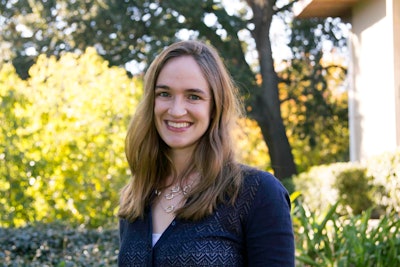Black students in elementary school, particularly Black boys, are less likely to be identified for special education when their teachers are also Black, according to a new report published by the American Educational Research Association (AERA). Dr. Cassandra Hart
Dr. Cassandra Hart
The report, Teacher-Student Race Match and Identification for Discretionary Educational Services, analyzes administrative data from North Carolina elementary schools from 2008 to 2013 to determine whether having Black teachers would affect the rates at which Black students – and those of other races – are designated for either gifted or special education programs.
While gifted programs are meant to recognize exceptional academic ability, special education programs aim to address potential academic shortcomings that a student may have due to disabilities. But the latter, though meant to be helpful, can come with distinct drawbacks, the report noted.
“On the one hand, receiving special education services may be beneficial to students to the extent that students genuinely need those services to keep up with peers academically,” the report noted. “On the other hand, some scholars have argued that special education use stigmatizes children and can cause them harm, even as it is intended to serve protective functions.”
Past research has shown that Black students are less likely to be identified for gifted programs than white or Asian students.
“Black kids are underrepresented in gifted services and overrepresented in special education services,” said report co-author Dr. Cassandra Hart, an associate professor of education policy at UC Davis. “That can be problematic, to the extent that both of those placements are kind of associated with longer-term student trajectories.”
And according to the report, having a teacher of the same race as a student has been shown to be related to a trove of positive student outcomes, including test scores, behavior, high school drop out rates, and college matriculation, especially for Black boys who are economically disadvantaged during their elementary and middle school years.
There was little evidence to show that having a Black teacher meant a higher likelihood for Black students to be identified for gifted services, except for second-grade Black girls with Black teachers, who were found to be almost two percentage points more likely to be designated as gifted.
 Dr. Constance Lindsay
Dr. Constance Lindsay
About 7% of Black elementary school students with non-Black teachers were found to be identified for special ed and as having a disability. But those with Black teachers were almost one percentage point less likely to be identified as such, according to the report. This translates to about a 13% reduction in the likelihood for a Black student to be identified with a disability when they have a Black teacher as opposed to a non-Black one, Hart confirmed.
For Black boys specifically, the difference was more pronounced. While about 9% of Black boys – when they have non-Black teachers – are identified for special ed programs, the likelihood drops by approximately 1.7 percentage points with they have Black teachers instead, an 18% reduction in likelihood.
Economically disadvantaged Black male students – as designated by the state – were found to face an even larger reduction when paired with Black teachers, almost 2 percentage points. And Black boys in the second grade were notable for their distinct 2.5-percentage point reduction.
“We do see that there is a reduction in the likelihood of Black boys in particular being identified for special education services when they're matched with Black teachers,” Hart said. “And that's especially true for economically disadvantaged Black boys in earlier grades and for the types of disabilities that are more likely to have an element of subjectivity to them, things like [dyslexia and ADHD, compared to hearing loss.]”
For Black girls, differences in the likelihood of being identified for special ed were “nonsignificant and small,” the report noted.
No notable findings were discovered regarding how having a Black teacher affects the rates at which students of other races – white, Hispanic, and Asian/Pacific Islander students – are identified for gifted services either. And white students with Black teachers were found to have a lower chance of being designated for special ed as well, again more so for boys than girls.
The results of this research add to the case for the U.S. school system to diversify its educator workforce more, Hart said.
“I would interpret these results as supporting efforts to try to diversify the teacher workforce and to try to ensure recruitment of Black teachers into teaching positions,” she said. “Most teachers are not Black.”
According to the Pew Research Center in 2021, 7% of elementary and secondary public school teachers for the 2017-18 school year were Black.





















